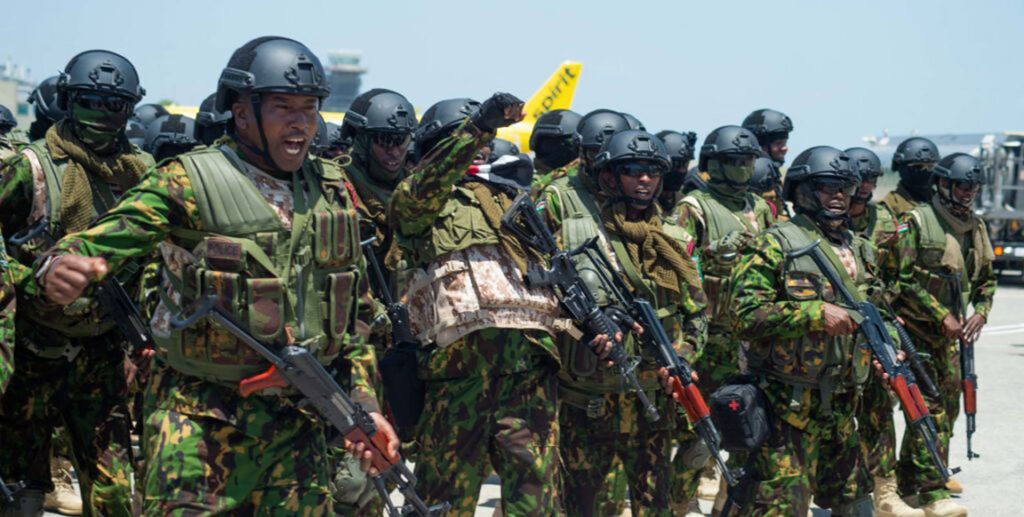Kenyan police officers arrive in Haiti in July 2024 as part of a U.N. security mission to reestablish law and order. The Royal Bahamas Defence Force will assist the mission. AFP/GETTY IMAGES
THE WATCH STAFF
Efforts by the Royal Bahamas Defence Force (RBDF) throughout the last year to deter illegal migration from Haiti were effective, its leader told the Bahamian media in late July 2024. Commodore Raymond E. King said that placing patrol boats on the southeastern maritime approaches to the Bahamas has slowed the numbers of Haitians risking the treacherous journey. But with the deployment of a Kenyan police-led U.N. force in Haiti, King said he expected illegal migration to once again surge from the neighboring Caribbean nation. Similarly, the RBDF has pledged personnel and, possibly training, to the U.N. mission in Haiti.
King said the previous RBDF blockade of the approaches from Haiti had deterred migrants, despite surges this spring and during the 2023 winter. “We saw some traction, and the Coast Guard would have dealt with one or two vessels,” King told the Nassau Tribune newspaper in July 2024. “I think the Haitian Coast Guard itself would have had to respond to a vessel that sunk, and I think they were able to rescue some 41 of their own nationals, and so it had slowed, but we remain positive. We still have assets dedicated to the southeastern Bahamas to respond to any need.” However, with the U.N. security force beginning to deploy, increased violence and resulting migration is to be expected, he said. In the first three months of 2024, the U.N. reported, gang-related violence reportedly killed or injured 2,500 Haitians, including 82 children. Women and children have been the worst affected, amid heightened risk of sexual violence and exploitation, the U.N. report stated.
The unrest in Haiti, which spiked three years ago after the assassination of its president, reached a boiling point this year when heavily armed gangs overran the country’s ports, hospitals and security forces. Kenya agreed to lead a 2,500-strong police force to support Haitian police in their efforts to reestablish security and the rule of law. The U.N. authorized the mission in October 2023, and the first contingent of Kenyan police arrived in June 2024. The Bahamas pledged as many as 150 RBDF members initially, but as mission planning and logistics progressed, the overall number of officers and where they’ll be deployed has been reconsidered, according to the Miami Herald, a U.S. newspaper. King told Bahamian reporters in May 2024 that the Bahamas contribution may be the training of Haitian Coast Guard personnel in the Bahamas and may involve as few as five RBDF members.
The U.S. is the largest donor to the multinational security support force, providing $309 million from the State and Defense departments and another $60 million in equipment and services from other U.S. government agencies, the Herald reported. Along with $21 million in contributions to a U.N.-controlled trust fund, the U.S. funds are sufficient to support the 400 Kenyan police officers currently in Haiti and the 200 or so who will be arriving shortly from Jamaica, the newspaper reported. Aside from the Bahamas, Jamaica and Kenya, Bangladesh, Barbados, Benin and Chad and as many as eight other Caribbean nations have pledged officers. Canada has provided training.

